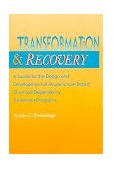Resources for Acupuncture in Chemical Dependency Treatment and Recovery

What staffing is required for treatment programs that have an acupuncture component?
The answer to this question
will be determined in part by your own State's laws governing ear acupuncture
for detox (check with your State Board of Medical Examiners). If your
State has an "acu-detox," law, any of your current staff members
may be trained to do the needling under the supervision required by law.
The training is done by the National
Acupuncture Detoxification Association (NADA). Since the acupuncture
is not scheduled at the same time as groups, most programs are able to
use existing counselors with no additional clinical staffing.
In States where only licensed
acupuncturists, chiropractors, or other medical practitioners are allowed
to do acupuncture needling, the practitioner is optimally hired on contract
for 1.5 hours for each hour that the clinic is open so they have time
allotted for clinic set-up and dismantling. These people also require
NADA training in the specific protocols they will be using. In large programs,
it is also highly recommended that this professional be reimbursed for
attending staff meetings and supervision and casings meetings. (Some programs
pay two different rates for this person - a "clinical rate"
for needling and a lower "administrative rate" for attending
meetings.)
If more than 20 people are
treated at once, it is strongly recommended that the program also have
a "clinic monitor" during the time that the clinic is open to
make tea, do intakes, monitor needle safety, and assist clients with questions
so that the clinician is free to concentrate on giving treatments. The
clinic monitors are usually assigned from existing staff, optimally on
a rotating basis so all front-line staff gain a familiarity with the acupuncture
program.
For some clients, the psychological and emotional effects of acupuncture are more profound than for others. Some report significant mood changes. While these changes are almost universally reported as positive, some people - especially those with psychiatric disorders - may find these changes disconcerting. The treatment may also stir traumatic memories. As with all treatment interventions, it is very important therefore that the program have qualified staff available during and after acupuncture for counseling and support for issues that might arise for clients during treatment.
previous
- Read FAQs in Sequence - next
Index of Articles - Links - Home
Scroll down for more FAQs
How many clients can be treated at once?
How often do clients need to be treated?
How long to clients have to keep having treatments?
Does it matter what time of day the acupuncture is provided?
What
national organizations support acupuncture in treating addiction? What
resources are available to support us if we decide to do it?
Does
the acupuncture program have to include herbs or nutritional supplements?
What
is the history of how acupuncture began to be used in chemical dependency
treatment?
What
does the acupuncture clinic look like exactly?
How
much space and extra equipment will we need to do it?
How
do we clean or dispose of the needles after they are used?
How
does acupuncture fit with drug testing?
How
do we find and train people to do the needling?
Could
we just try it experimentally to make sure it's a good fit for us?
What
technical assistance will be required to start and maintain an acupuncture
component?
Is
it compatible with harm reduction?
Is
it compatible with 12-Step or abstinence-based treatment approaches?
Is
it appropriate for mandated or court-referred clients?
Is
it appropriate for adolescents?
Is
it appropriate for pregnant women?
Is
it appropriate for people with co-morbid psychiatric problems?
Is
it appropriate for people with HIV/AIDS?
Is
it appropriate in methadone programs?
Is
it appropriate in residential programs?
What
training is required for current program and administrative staff?
What are the steps we should take to add an acupuncture component?